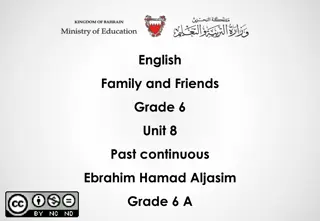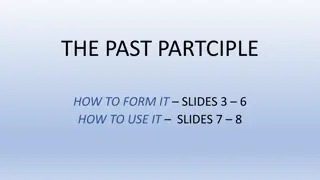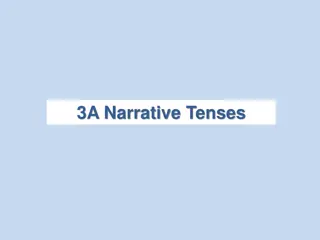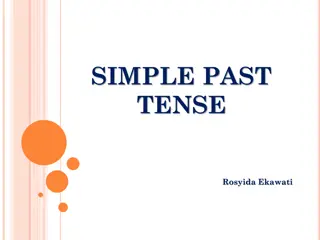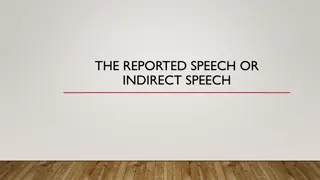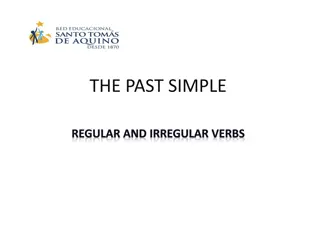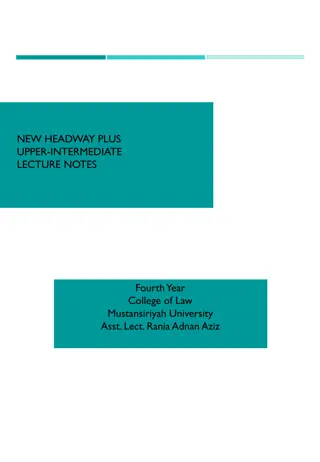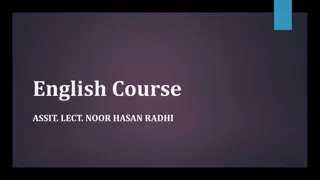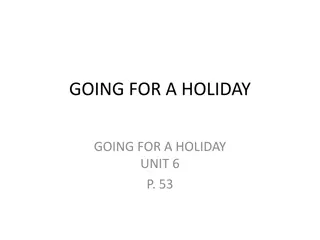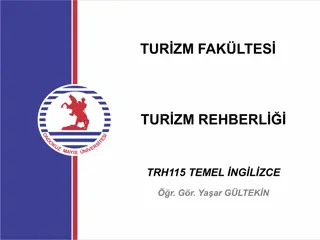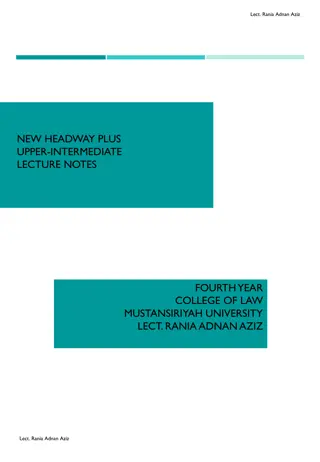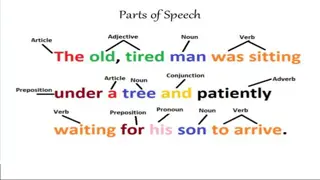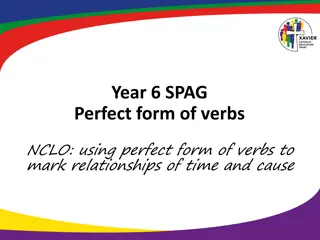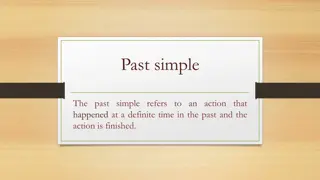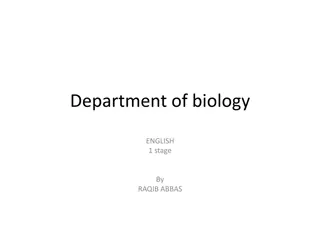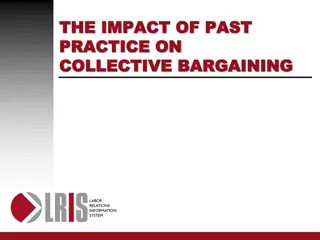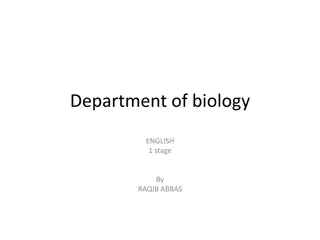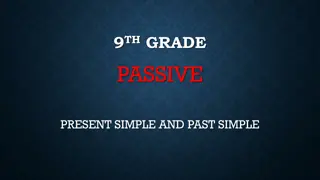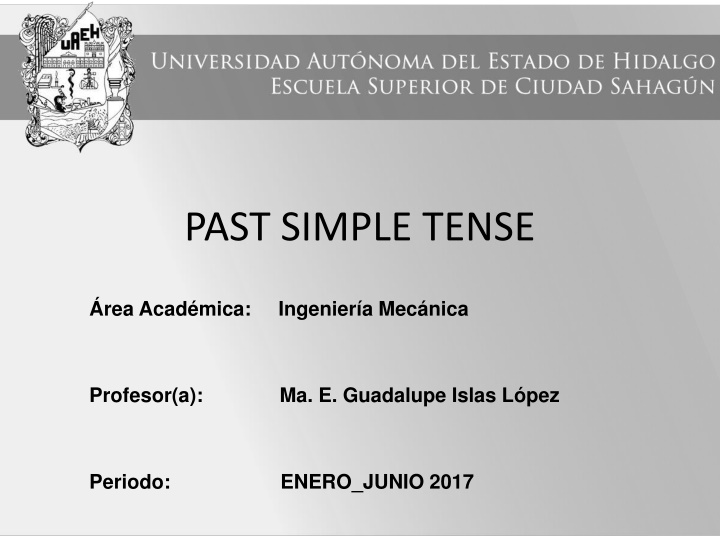
Past Simple Tense in Academic Settings
Explore the past simple tense, the first topic in an academic program, covering regular and irregular verb forms, spelling rules, and usage examples for actions in the past. Enhance your language skills with this comprehensive guide.
Download Presentation

Please find below an Image/Link to download the presentation.
The content on the website is provided AS IS for your information and personal use only. It may not be sold, licensed, or shared on other websites without obtaining consent from the author. If you encounter any issues during the download, it is possible that the publisher has removed the file from their server.
You are allowed to download the files provided on this website for personal or commercial use, subject to the condition that they are used lawfully. All files are the property of their respective owners.
The content on the website is provided AS IS for your information and personal use only. It may not be sold, licensed, or shared on other websites without obtaining consent from the author.
E N D
Presentation Transcript
PAST SIMPLE TENSE rea Acad mica: Ingenier a Mec nica Profesor(a): Ma. E. Guadalupe Islas L pez Periodo: ENERO_JUNIO 2017
PAST SIMPLE TENSE Resumen El tiempo pasado simple es el primer tema de la unidad I que conforma acad mico institucional) de la materia de eventos pasados y futuros en lengua extranjera. Abstract The past simple tense is the first topic in unit I in PAI (programa acad mico institucional) in the subject past and future events in a foreign language. el PAI (programa Keywords: past, unidad I, eventos, lengua extranjera
Regular verbs form -ed for all persons Play played Work worked Stay stayed Listen listened
SPELLING: 1) Double the consonant if the consonant is stressed stop stopped swap - swapped 2)Add only d, when the verb ends with e love loved save saved 3)Verbs ending in 'y' preceded by a consonant: Change 'y' to 'i' Then add -ed. hurry - he hurried (watch out! play played)
Irregular verbs form The form CHANGES from infinitives, usually with a vowel change. Can be grouped according to certain change patterns, which helps to memorize them.
Certain change patterns speak spoke eat ate see saw fly flew think thought
Verb TO BE I he she it you we they was were
Past Simple Use Actions that started and finished in the past I went to the beach last Sunday I bought a new car yesterday.
Past Simple Use Actions that happened one after the . in the past (like in a story) He came in, took off his coat and sat down. I went into the disco and I saw my favourite girl, then I asked her to dance,...
Negative Sentences DID NOT + VERB (base form) Example: I did not work yesterday or I didn t work yesterday INCORRECT: I didn t worked
Negative Sentences verb TO BE WAS / WERE + NOT Examples: I was not at school yesterday afternoon or I wasn t at school yesterday afternoon They were not at home last weekend or They weren t at home last weekend
REMEMBER!! Positive sentences: I played football yesterday I went home early on Saturday Negative sentences: I didn t play football yesterday I didn t go home early on Saturday Yes/No questions: Did you play football yesterday? Did you go home early in Saturday?
Positive sentences: I was in London last year Negative sentences: -They weren t at home last weekend Yes/No questions: Were you ill yesterday?
Referencias Evans, V. y Dooley, J. (2003). Upstream. Beginner. Express Publishing.

